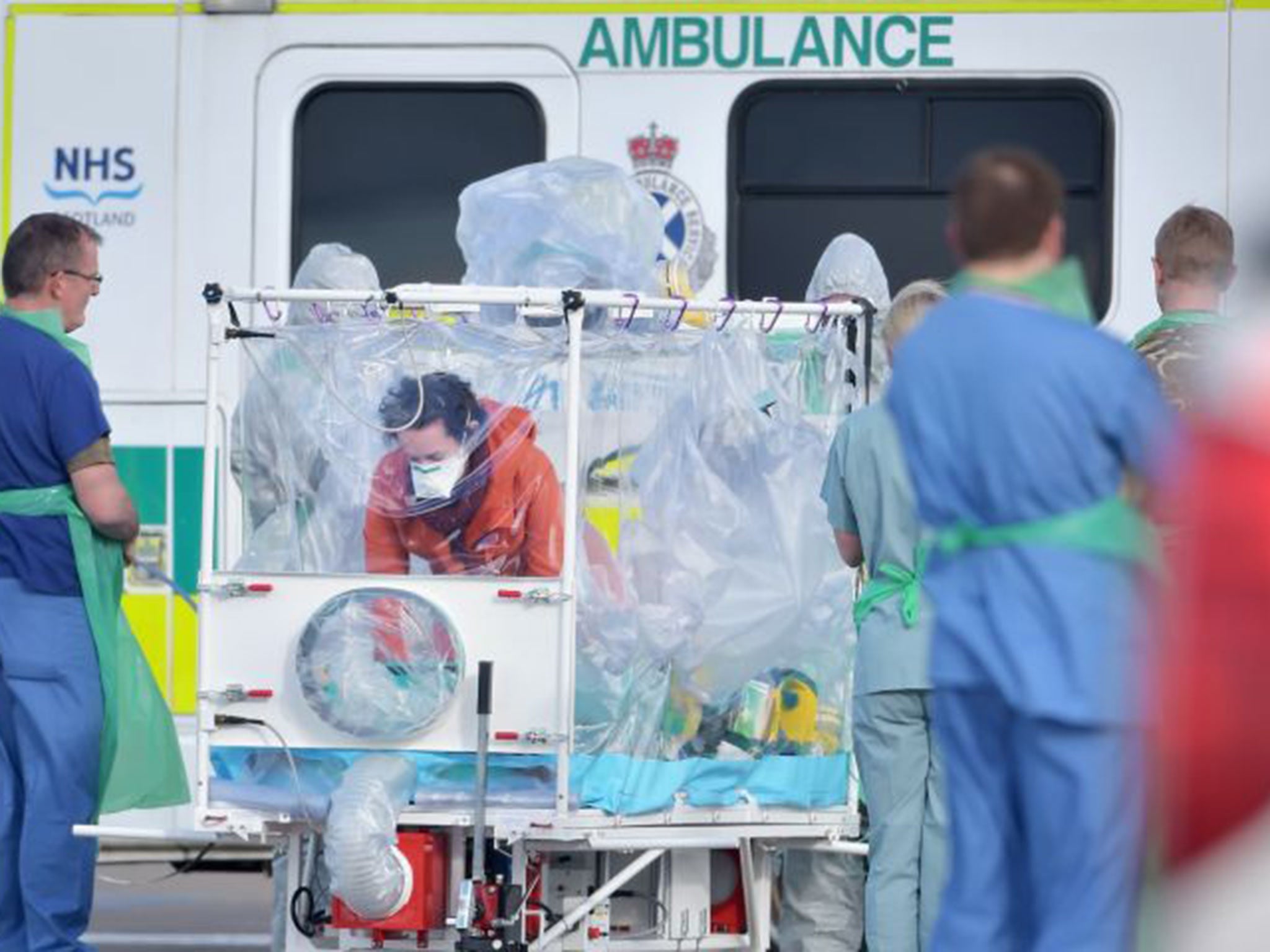Ebola survivors suffer long-term brain health problems, new study reveals
Most had some form of 'neurologic abnormality' at least six months after they became infected

Your support helps us to tell the story
From reproductive rights to climate change to Big Tech, The Independent is on the ground when the story is developing. Whether it's investigating the financials of Elon Musk's pro-Trump PAC or producing our latest documentary, 'The A Word', which shines a light on the American women fighting for reproductive rights, we know how important it is to parse out the facts from the messaging.
At such a critical moment in US history, we need reporters on the ground. Your donation allows us to keep sending journalists to speak to both sides of the story.
The Independent is trusted by Americans across the entire political spectrum. And unlike many other quality news outlets, we choose not to lock Americans out of our reporting and analysis with paywalls. We believe quality journalism should be available to everyone, paid for by those who can afford it.
Your support makes all the difference.A majority of Ebola survivors suffer some form of long-term brain health problems, according to a new study.
Patients who were successfully treated for the disease were found to have neurological issues six months later.
The most common problems included muscle pain, headaches, memory loss and depressed moods, but in rare cases patients were suicidal, the US researchers said.
It comes as British nurse Pauline Cafferkey remains in the Royal Free Hospital in London for treatment for a "late complication" from Ebola.
It is the third time the 40 year old, from South Lanarkshire, Scotland, has been treated in hospital since contracting the virus in Sierra Leone in December 2014 at a Save the Children treatment centre.
The study, by the US National Institute of Neurological Disorders and Stroke, examined 82 survivors in Liberia and found that most had some form of "neurologic abnormality" at least six months after they became infected.
Around two thirds of the group, which had an average age of 35, had body weakness, while half suffered headaches and memory loss. Two people were suicidal and one suffered hallucinations.
Doctors also found survivors commonly had abnormal eye movements and tremors.
The research, which will be presented at the annual meeting of American Academy of Neurology, forms part of a wider study into the long-term health effects of the virus.
More than 17,000 people survived the outbreak in west Africa, although the virus left 11,300 dead.
Dr Lauren Brown, the study's author, said: "While an end to the outbreak has been declared, these survivors are still struggling with long-term problems."
"It is important for us to know how this virus may continue to affect the brain long term."
Speaking to the BBC, Dr Brown added: "It was pretty striking, this is a young population of patients, and we wouldn't expect to have seen these sorts of problems.
"When people had memory loss, it tended to affect their daily living, with some feeling they couldn't return to school or normal jobs, some had terrible sleeping problems.
"Ebola hasn't gone away for these people."
The World Health Organisation declared the Ebola outbreak over last year, but two new cases emerged in Sierra Leone in January. The organisation called for a "critical period of heightened vigilance".
Press Association
Join our commenting forum
Join thought-provoking conversations, follow other Independent readers and see their replies
Comments